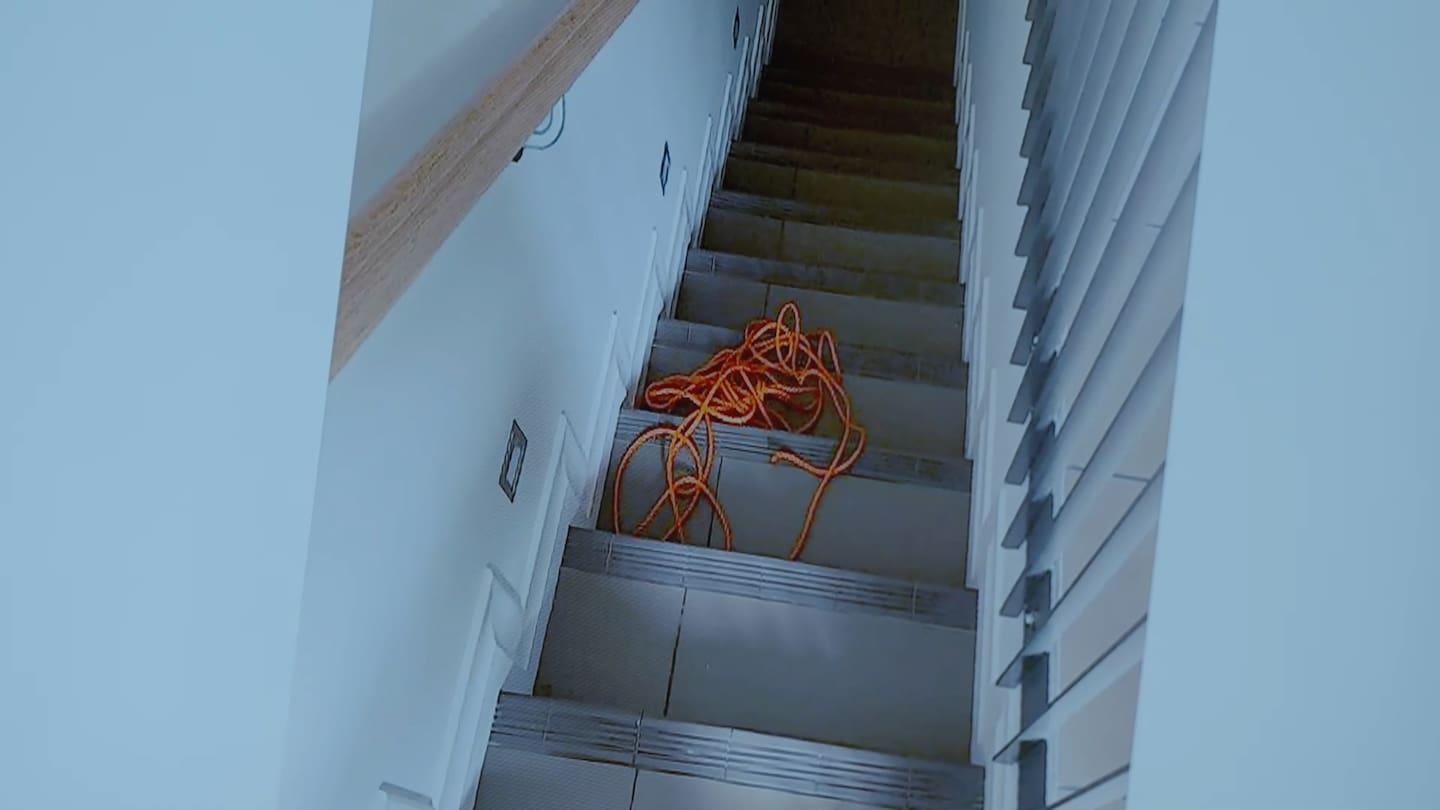WARNING: DISTURBING CONTENT
Police officers and paramedics are due to give evidence on day two in the murder trial of Auckland eye surgeon Philip Polkinghorne.
The Crown yesterday said that behind the scenes, Polkinghorne was trapped in a cycle of financial despair caused in part by his frequent infidelity with escorts and a major methamphetamine habit, prosecutors alleged today as his murder trial began, suggesting the 71-year-old strangled his wife Pauline Hanna and staged the scene in the entry of their Remuera home to look like a suicide by hanging.
His defence team countered by describing a “one-eyed investigation” based on an erroneous suspicion and a “desperate need to find evidence of a nature that frankly never existed”.
STORY CONTINUES AFTER LIVE BLOG
STORY CONTINUES
“Dr Polkinghorne loved his wife,” lawyer Ron Mansfield KC told jurors in the High Court at Auckland. “They might have had sexual encounters independently ... but he loved his wife. She loved him. This was not a relationship marred by violence at all. Nor was it a relationship marred by control of any kind.”
Hanna, 63, was found dishevelled, injured and covered by a duvet when emergency responders arrived at the couple’s home on the morning of Easter Monday in April 2021.
Members of the emergency services who attended the scene are due to give evidence today.
The trial, before Justice Graham Lang and the jury, is expected to last at least six weeks.
‘My wife’s dead’
The jury yesterday heard the 111 call Polkinghorne made after his wife’s death.
“My wife’s dead. She’s hung herself,” Polkinghorne told the operator, his voice seemingly distressed. “She’s cold. She’s not breathing.”
But almost immediately after police arrived, they had suspicions, Crown Solicitor Alysha McClintock said during her hours-long opening address. Investigators also took issue with the way Polkinghorne described his marriage to them: either “quite good” or “perfect”.
“The marriage was far from good. It was far from perfect,” McClintock said, explaining Hanna had considered leaving the defendant in the year-and-a-half leading up to her death. “It wasn’t even plain old good.”
Roughly a year before she died, Hanna revealed a disturbing glimpse into the troubled marriage while visiting friends in Hawke’s Bay, prosecutors said.
“She told them that Dr Polkinghorne had attempted to strangle her with his hands and said something to the effect of he could do it again at any time,” McClintock said, explaining that another witness was expected to recount how Hanna said her husband “had been beastly towards her”.
 Pauline Hanna and Philip Polkinghorne at an event in December 2018. Photo / Norrie Montgomery
Pauline Hanna and Philip Polkinghorne at an event in December 2018. Photo / Norrie Montgomery
There was physical evidence as well that made investigators suspicious, she said, including the orange rope tied to an upstairs bannister that the defendant described finding his wife hanging from. But the rope, McClintock said, was “too loose and too long” to have caused a death.
Hanna initially had a pattern on the side of her neck matching the weave of a belt that was found at the scene, but it disappeared by the time a pathologist examined her the next day. That wouldn’t have been the case had it been the cause of her death, the Crown said, suggesting that was more evidence the suicide scene was staged.
 A police evidence photo of rope found at Philip Polkinghorne's Remuera home.
A police evidence photo of rope found at Philip Polkinghorne's Remuera home.
 A police evidence photo of rope found at Philip Polkinghorne's Remuera home.
A police evidence photo of rope found at Philip Polkinghorne's Remuera home.
Authorities found what looked like a fresh cut to her face - one that hadn’t been seen by witnesses the night before - and an injury to Polkinghorne’s forehead he could not explain, McClintock said.
They also found over 37g of methamphetamine scattered throughout the home - described by prosecutors as a “significant amount” considering a normal purchase amount for a user might be a tenth of a gram. Post-mortem tests showed Hanna had none of the drug in her system at the time of death.
Polkinghorne began the day by pleading guilty to two minor charges involving possession of methamphetamine and the possession of a meth pipe. For the past two years, the charges were not allowed to be reported, but suppression lapsed with the admission of guilt.
 A police evidence photo of rope found at Philip Polkinghorne's Remuera home.
A police evidence photo of rope found at Philip Polkinghorne's Remuera home.
“Dr Polkinghorne was leading a double life,” McClintock continued in her opening address. “The aspects of his double life were getting harder and harder to keep from his wife.”
Prosecutors said they believe it all came to a head between the couple either the night before or the morning that Polkinghorne called 111.
“He strangled her - either with his hands, a forearm or something soft and smooth around her neck,” McClintock said, suggesting his aggression might have been spurred in part by meth use. “He then staged the scene to make it look like his wife’s death was a suicide. That might sound shocking or like something from a crime novel.”
But it was the only explanation that made sense, she said.
Despite concerns about her marriage, there is no indication Hanna was suicidal, McClintock added.
 Prominent eye surgeon Philip Polkinghorne is on trial for murder in the High Court at Auckland. Photo / Michael Craig
Prominent eye surgeon Philip Polkinghorne is on trial for murder in the High Court at Auckland. Photo / Michael Craig
“Ultimately, she was coping with this challenging aspect of her life,” she told jurors.
The defence, however, strongly disagreed.
Hanna, referred to by Mansfield as “Mrs Polkinghorne”, had a history of depression and suicide attempts, he alleged.
“The combination of drugs and alcohol she was taking, sadly, left her prone to taking her own life,” he said.
He promised to call international experts to rebut the Crown’s contention the death was inconsistent with suicide.
He noted repeatedly that it took police 16 months to charge his client, suggesting that might be a sign even authorities weren’t convinced the nefarious act now alleged had ever taken place.
 Crown Solicitor Alysha McClintock addresses jurors in the murder trial of Philip Polkinghorne while defence lawyers Ron Mansfield and Hannah Stuart listen in the background. Photo / Michael Craig
Crown Solicitor Alysha McClintock addresses jurors in the murder trial of Philip Polkinghorne while defence lawyers Ron Mansfield and Hannah Stuart listen in the background. Photo / Michael Craig
“There was no double life - they were open and honest with each other,” Mansfield said. “Their relationship had been good, supportive and positive. She was open with her friends and colleagues regarding their lifestyle.”
The defence opening statement is, by design, always shorter and less detailed than the Crown opening address at the start of a trial. Mansfield, however, will have two other opportunities to address jurors directly as the trial unfolds - including the last word during closing addresses, likely in September.
Prosecutors briefly displayed a photo of Hanna on multiple television screens mounted inside the High Court’s largest courtroom as they delivered their opening address today. She had worked in various roles in the public health system and had been looking forward to helping manage the rollout of the Covid-19 vaccine, authorities said. On the night before the 111 call, she had helped her husband draft a retirement letter and watched a Netflix show before heading to bed about 10pm, jurors were told.
Craig Kapitan is an Auckland-based journalist covering courts and justice. He joined the Herald in 2021 and has reported on courts since 2002 in three newsrooms in the US and New Zealand.
The Herald will be covering the case in a daily podcast, Accused: The Polkinghorne Trial. You can follow the podcast at iHeartRadio, Apple Podcasts, Spotify, through The Front Page feed, or wherever you get your podcasts.
Take your Radio, Podcasts and Music with you









